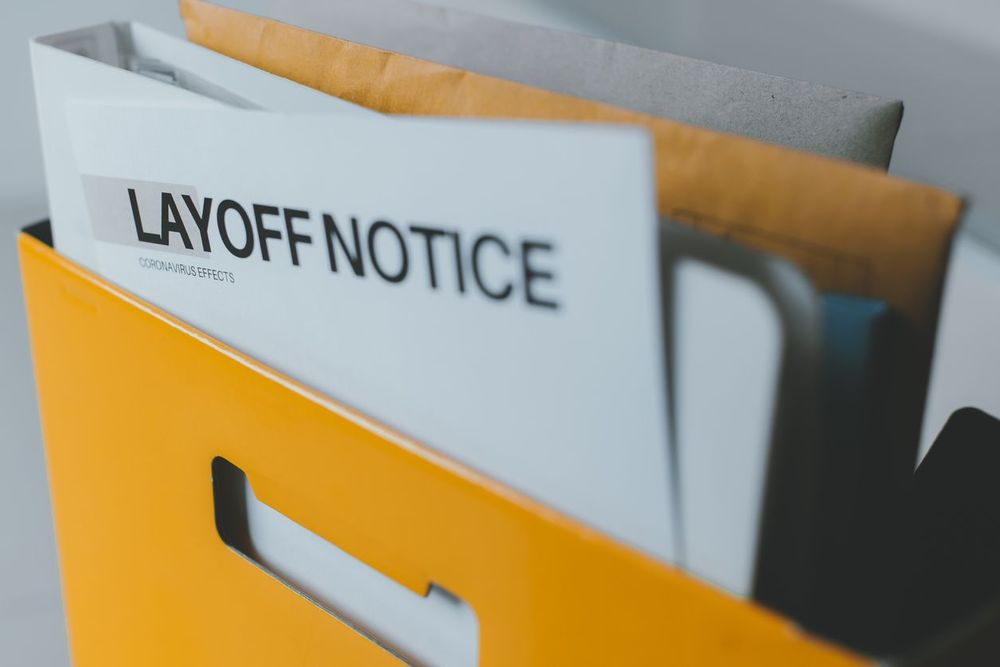
You could lose your job a few reasons, but the reason you lose your job isn't as important as what you do after you become unemployed. While there's no way to prevent being fired or laid off, there are ways you can get back on your feet quickly. By following these tips, you can set yourself up for a successful future.
After losing your job, you might want to avoid your previous employer at all costs. However, this could keep you from receiving the money you deserve. You may be eligible for overtime pay, unused vacation time, and unused sick time. If you don't approach your employer about receiving a check, you may never get the funds.
In some cases, an employer may withhold your last paycheck. It's essential that you fight for what you earned. Don't waste any time asking for a check.
In addition to requesting your paycheck, you should also inquire about COBRA and your 401(k). Typically, your HR department will handle the request. They need to fill out a form to make you eligible for COBRA, which will allow you to maintain your current health insurance. If your employer never fills out the paperwork, you won't have access to the insurance policy.
Additionally, the money in your 401(k) also matters. After you lose your job, ask the HR department how you can roll over your 401(k). The money belongs in your control and can transfer to a different account.
Before you sign anything or walk out of the building, so about severance pay. Depending on the situation, your employer could be required to pay you one or more month's of salary and health benefits.
Usually, severance only applies when an employer fires a certain number of people. However, it's always worth asking about. If your employer asks you to sign an agreement not to take legal action about an incident, ask them for compensation. Think carefully before you agree to anything, and consult with an attorney with your questions.
Assuming you still have access to your company email address, use your account to send a goodbye message. The message can be simple and straightforward and should have a positive message.
In your message, thank everyone for the time you spent together. Inform them that it's your last day there and include your new contact information. If you're active on social media, leave a link to your account.
For a few days after you lose your job, you might want to lay low. But doing so could keep you from collecting unemployment. It often takes weeks for applications to go through, and you should apply for unemployment as soon as possible to avoid delays.
If you feel guilty applying for unemployment, think about the facts. When you were working, some of your salary was withheld to go towards unemployment. You earned your benefits, so don't let them sit unused.
While your first inclination may be to hide the news of your misfortune from your family and friends, take the opposite approach. Post the news on social media, but don't complain. Instead, be positive and optimistic about new opportunities. Let your LinkedIn followers know about your job hunt.
As the news spreads, you could get a few job offers. Even if you don't hear back immediately, you could get a job offer in the future. At the least, sharing the news increases your chance of finding out about job openings.
Instead of sulking around your home, take the time to learn new skills. Remember that online course you didn't have time to take last year? Now is the perfect opportunity to take it. If you can't afford the course you want, look into free programs. Several universities and online learning platforms offer free courses.
You could either learn skills that advance your current career or take a new career path. In any case, there is an abundance of opportunities out there. Research your opportunities and choose them with care. In the end, your education could be what gets you a new job.
Although you might have enough money saved up to sustain your lifestyle for months after losing your job, don't hesitate to find work. The hunt for work often takes longer than people expect. Even if you receive an offer for the first job you apply for, it could be a month before the hiring process is complete.
If you have a large gap in your employment history, an employer could hold it against you. Rather than deal with the challenges that come with explaining an employment gap, make your life easier and apply for work as soon as possible.
Applying early also gives you time to practice. If you haven't applied for jobs or interviewed in a few years, you are out of practice. Whether or not you get a job offer, getting a head start allows you to practice. You can learn where your resume needs to improve and how to represent yourself during an interview better.
In addition to applying for new jobs, you need to update your resume. Be sure to include your last job on the document. It doesn't matter that your previous employer let you go. However angry or ashamed you might be about losing your job, don't let it keep you from including it in your resume. There are two main reasons for this.
First, there's the fact that you gained skills and experience in your last position. No matter how things ended, you improved upon yourself during your employment period. It's also worth considering the fact that a hiring manager will ask about your previous employer. If you don't include it on your resume, you'll have a large gap and plenty of questions to answer.
Lorem Ipsum is simply dummy text of the printing and typesetting industry. Lorem Ipsum has been.
